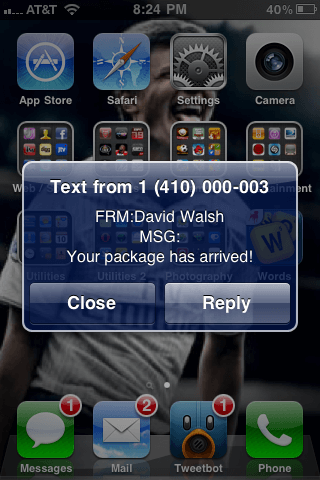fetch with Timeout
A few years back I wrote a blog post about how write a fetch Promise that times out. The function was effective but the code wasn't great, mostly because AbortController , which allows you to cancel a fetch Promise, did not yet exist. With AbortController and AbortSignal available, let's create a better JavaScript function for fetching with a timeout:
AbortSignal instances now feature a timeout option to time the Promise out after a given amount of milliseconds:
async function fetchWithTimeout(url, opts = {}, timeout = 5000) {
// Create a signal with timeout
const signal = AbortSignal.timeout(timeout);
// Make the fetch request
const _fetchPromise = fetch(url, {
...opts,
signal,
});
// Await the fetch with a catch in case it's aborted which signals an error
const result = await _fetchPromise;
return result;
};
// Usage
try {
const impatientFetch = await fetchWithTimeout('/', {}, 2000);
}
catch(e) {
console.log("fetch possibly canceled!", e);
}
While formerly the AbortSignal would come from an AbortController, you can now use AbortSignal.timeout to create the signal.
At the moment, however, only edge browser versions support AbortSignal.timeout. So much like the original function, an alternative function could use setTimeout to time to the cancellation but we'll use the signal with the fetch request:
async function fetchWithTimeout(url, opts = {}, timeout = 5000) {
// Create the AbortController instance, get AbortSignal
const abortController = new AbortController();
const { signal } = abortController;
// Make the fetch request
const _fetchPromise = fetch(url, {
...opts,
signal,
});
// Start the timer
const timer = setTimeout(() => abortController.abort(), timeout);
// Await the fetch with a catch in case it's aborted which signals an error
try {
const result = await _fetchPromise;
clearTimeout(timer);
return result;
} catch (e) {
clearTimeout(timer);
throw e;
}
};
// Usage
try {
const impatientFetch = await fetchWithTimeout('/', {}, 2000);
}
catch(e) {
console.log("fetch possibly canceled!", e);
}
The JavaScript code above is much cleaner now that we have a proper API to cancel fetch Promise calls. Attaching the signal to the fetch request allows us to use a setTimeout with abort to cancel the request after a given amount of time.
It's been excellent seeing AbortController, AbortSignal, and fetch evolve to make async requests more controllable without drastically changing the API.





Can’t you do the
clearTimeout(timer);in a finally block? Instead of both in the regular flow and the catch.There’s also
AbortSignal.timeout(). I think it’s about as well supported as signal by now, but pretty easy to shim.